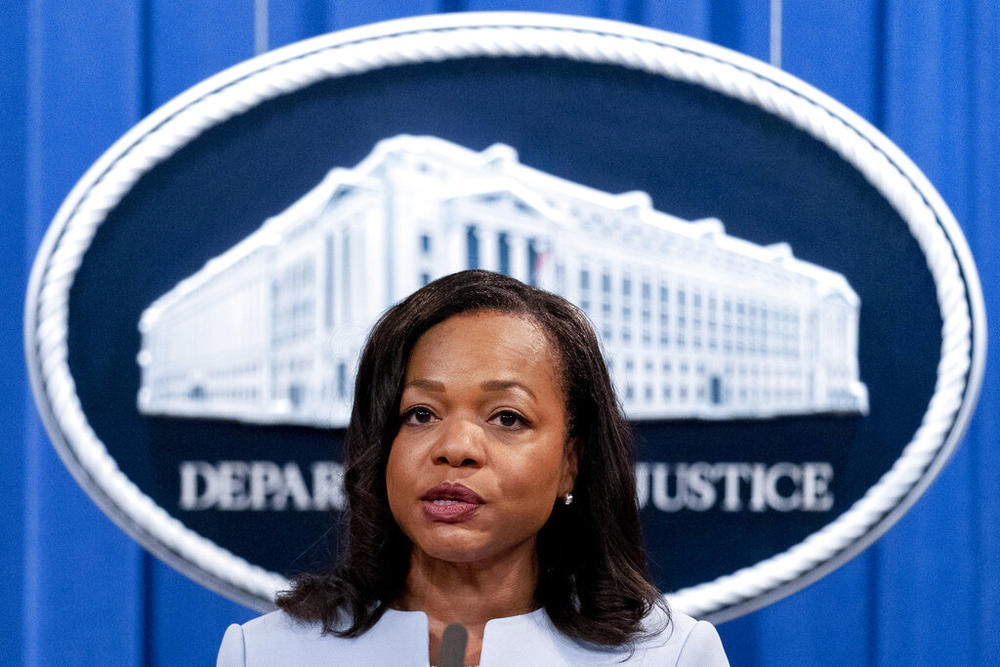
Caption
In this Aug. 5, 2021 file photo, Assistant Attorney General for Civil Rights Kristen Clarke speaks at a news conference at the Department of Justice in Washington. The U.S. Department of Justice on Tuesday announced a statewide civil rights investigation into Georgia prisons. Clarke, who oversees the department's civil rights division, said the investigation will be comprehensive but will focus on “harm to prisoners resulting from prisoner-on-prisoner violence.”
Credit: Andrew Harnik/AP

